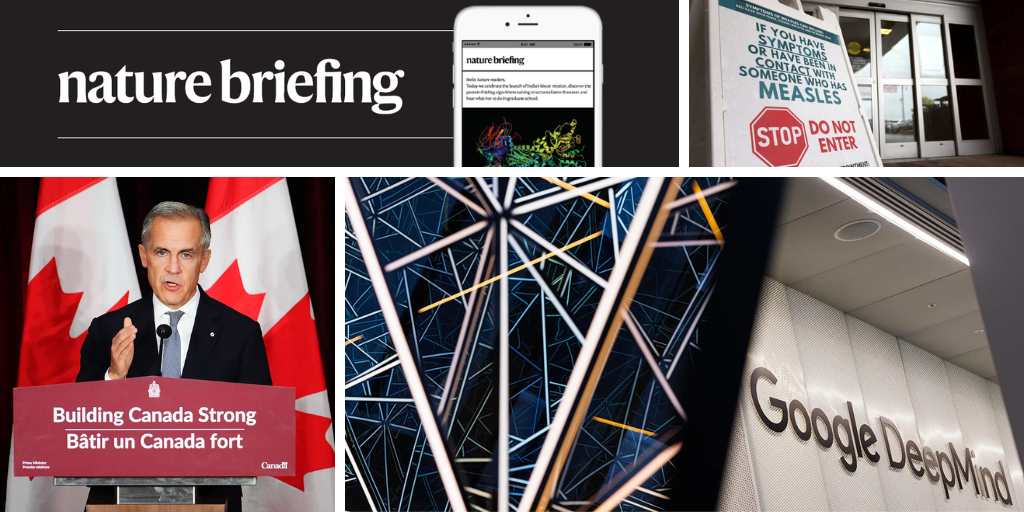
"Measles outbreaks in the United States and Canada could be a worrying sign of things to come, say public-health experts. "We tend to see measles outbreaks first, just because it's so contagious," says epidemiologist William Moss. The surge in North America follows one in Africa in 2019, and another in Europe in 2024. Vaccination rates in some places are declining, due in part to changing attitudes."
"Most large apes kiss - defined as "a non-agonistic interaction involving directed, intraspecific, oral-oral contact with some movement of the lips/mouthparts and no food transfer" - and Neanderthals probably did too, according to a new analysis. Researchers combed the literature and YouTube - they admit these data are just "a starting point" - for observations of kissing in various species and used it to reconstruct the evolution of the act."
Measles outbreaks in the United States and Canada could signal a broader resurgence of vaccine-preventable diseases. Measles is highly contagious and often appears before other outbreaks. The North American surge followed large outbreaks in Africa in 2019 and Europe in 2024. Vaccination rates are declining in some places, partly because of changing attitudes. Cuts to foreign aid for vaccination programmes and shifts in vaccination policies, particularly in the United States, increase the risk of further resurgences. Most large apes engage in kissing, defined as non-agonistic oral–oral contact without food transfer, and Neanderthals probably did too, with an estimated origin around 21.5 million years ago. Canada's federal budget largely spared the three main research-funding councils.
Read at Nature
Unable to calculate read time
Collection
[
|
...
]